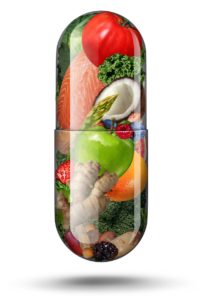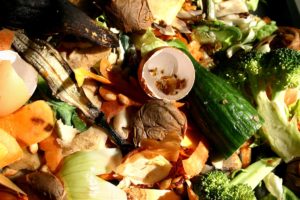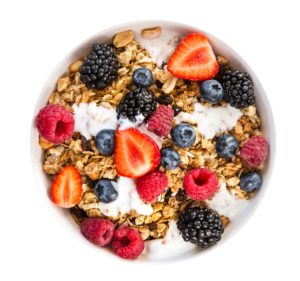Consumer EducationShare With Clients
Health News: True or False?
Reviewing health and fitness news on the internet can produce a minefield of misinformation. Anybody can open a social media account, build a polished website with DIY templates, and set up shop as a self-appointed health and fitness expert. And people who do this can lend their work an air of authority by mimicking the design and presentation of authoritative health-news sources.
Obesity Boosts Melanoma Risk
Add this to the list of dangers associated with obesity: New research from Sweden suggests obesity is a risk factor for developing skin cancer, and weight loss—in this case via bariatric surgery—could reduce the risk of malignant melanoma skin cancer, in particular, by 61%.
The study included 2,007 bariatric surgery patients and 2,040 nonsurgery controls whose skin cancer incidence was monitored for 18 years. Aside from the significantly lower risk of developing malignant melanoma, the surgery group saw a 42% reduction in skin cancer risk in general.
Cutting Facebook Lowers Stress Levels
Need to cut some stress out of your life? Researchers from the University of Queensland in Australia say that taking breaks from Facebook can help.
Their study included 138 active Facebook users who were asked to either take a 5-day fast from the social media platform or maintain current usage. Each person self-reported on their well-being and stress levels and underwent salivary cortisol tests before and after the intervention.
Too Little Or Too Much Sleep Poses Health Risks
National University College of Medicine in South Korea warns that sleeping more than 10 hours a night might be worse.
The Optimal Amount of Exercise for Heart Health
Arterial stiffness, which increases with sedentary living, is associated with higher risk of heart disease. It’s well known that exercise can help, but how much—or how little—is enough?
“While near-daily, vigorous lifelong (>25 years) endurance exercise training prevents arterial stiffening with ageing, this rigorous routine of exercise training over a lifetime is impractical for most individuals,” noted the authors of a new study, which aimed to determine the least amount of exercise necessary to reduce arterial stiffness.
Volume Is Key Factor In Building Strength
The secret to increasing strength and muscle mass may have more to do with how much training you do than how often you do it, according to a new report.
Exercise Doesn’t Slow Dementia, Say Researchers
Research has supported exercise as having the potential to keep dementia at bay or at least to impede its progression. A recent study suggests that physical activity may not be as effective at warding off cognitive decline as previously thought.
In this study, published in BMJ (2018; 361, k1675), 329 individuals were assigned to an exercise intervention, while 165 subjects received “usual care.” Average age was 77, and each participant had a clinically confirmed dementia diagnosis.
How Fast You Walk May Affect How Long You Live
Want to outwalk the grim reaper? Pick up the pace, say researchers. A new study from the United Kingdom suggests that quicker walking may add years to your life.
The study’s primary aim was to examine the impact of walking pace and volume on all-cause mortality. To determine this, researchers looked at mortality records for 50,225 individuals from Scotland and England who had self-reported their walking data via interview.
Weight Training’s Surprising Effects on Depression
Could a cure for depression be found in the weight room? Data from a study published in JAMA Psychiatry (2018; 75 [6], 566–76) points to that conclusion. The meta-analysis of 33 clinical trials, featuring 1,877 participants, found a link between resistance training (RET) and a reduction in depressive symptoms.
Question of the Month
It will soon be easier for consumers to make better food and beverage decisions when eating out or on the go. The U.S. Food and Drug Administration (FDA) has moved forward with a food labeling law that requires restaurants, grocery stores and convenience stores with 20 or more locations to post calorie counts for standard menu items. Proponents say calorie disclosures on everything from muffins to lattes to Happy Meals will offer more transparency and will likely encourage diners to downsize their consumption.
Food, Not Pills
Count this as more proof that we shouldn’t rely on pills and powders to make up for dietary shortfalls.
Are Healthy Eaters Wasteful?
Eating a diet based on whole foods deserves a thumbs-up. What’s hard to swallow, however, is that doing so might contribute to the heaps of food wasted in the United States.
Keto—Fat Chance of Performing Better
The ketogenic diet, a fat-forward meal plan that limits followers to about 20 grams of daily carbs, may help some people shed a little weight (in the short term), but it might not be good news for their athletic pursuits.
Plant Foods Are Good for Our Gut Bugs
Our bodies host a huge population of microorganisms, dubbed the human microbiome. In recent years, the makeup of critters in our guts has been linked to a plethora of conditions, including depression, heart disease and obesity. And now bug-friendly scientists at the University of California, San Diego School of Medicine have presented initial findings from the American Gut Project, a crowdsourced initiative that analyzes people’s survey responses and fecal samples to better understand how things like diet, lifestyle and disease affect the human microbiome.
Belly Fat vs. Vitamin D
Here’s another good reason for people to reduce their Buddha-bellies: improving their vitamin D status. According to data presented at the 2018 European Society of Endocrinology’s annual meeting in Barcelona, Spain, researchers from the Netherlands found that more body fat around adults’ waistline is associated with lower vitamin D levels. Beyond raising the risk of weak bones, poor vitamin D status could set the stage for other health issues, including heart disease and compromised immunity.
Ask the RD
Question: I have a sensitivity or allergy to tomatoes. My mouth and esophagus get itchy and sore when I eat them. Is there any way to make tomatoes less irritating? Is there a good substitute for tomatoes in recipes?
Answer: You may suffer from oral allergy syndrome (OAS), a relatively common reaction to plant foods, including tomatoes. People who have pollen allergies are more likely to have OAS (Asero 2013) because they react to similar proteins in vegetables, fruits and/or nuts.
Time to Snub the Clubs?
The prospect of getting extra bang for their food buck has more people perusing
warehouse-style club stores like Costco and Sam’s Club. But the urge to stockpile large amounts of food in the house may lead to calorie overload.
Portion Distortion
No wonder social media feeds are packed with pictures of overflowing smoothie bowls: It appears people feel the types of foods they consume play a bigger role in their health goals than the volume they eat. As a result, a study from Vanderbilt University published in Management Science suggests that those who are trying to maintain a healthy body weight or wishing to shed a few pounds might be prone to overeating “healthy” items like nuts, granola and avocados. The upshot: The public should be educated about practicing portion control—for foods of all kinds.
Snacks Are a Workplace Hazard
Many people can’t resist the temptation of homemade chocolate chip cookies in the break room or leftover Halloween candy circulating among the cubicles. A Centers for Disease Control and Prevention study of 5,222 employees across the U.S., using data from the U.S. Department of Agriculture’s National Household Food Acquisition and Purchasing Survey, documented this challenge.
Twitter’s Former CEO Shuts Down Fitness App Startup
Unable to solve the challenge of how to support positive behavioral change, Dick Costolo, former CEO of Twitter, decided in February to shut down Chorus, a social fitness app that began beta testing in April 2017. The app was designed to use a “chorus” of friends as team members and have them support each other in achieving self-proclaimed weekly fitness or other health-related goals.


















